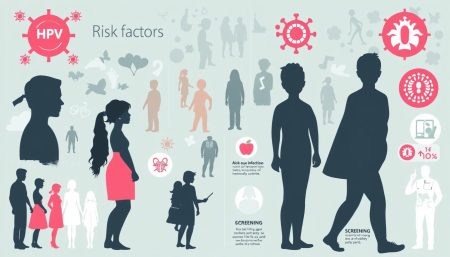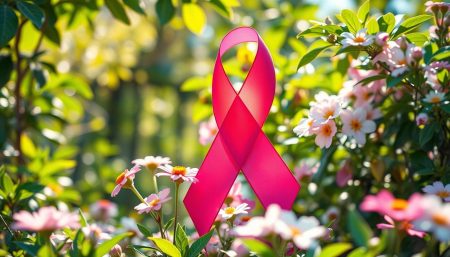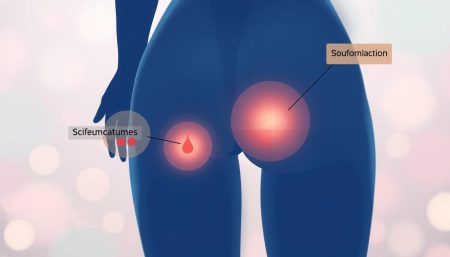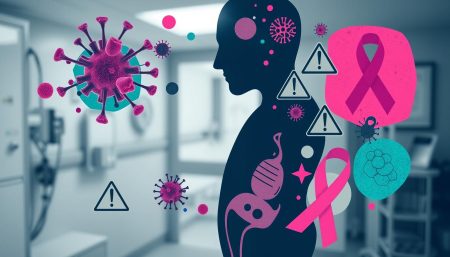Understanding anal cancer awareness is key. It’s a topic not often discussed, but it’s crucial. Spotting early signs of anal cancer is the first step towards detection.
Knowing these signs is vital. It can lead to an early diagnosis and better treatment. Knowledge is a beacon of hope, guiding us towards health and well-being.
This article will help you understand the signs of this disease. With this knowledge, you can take action. You’ll also encourage others to stay vigilant about their health.
Key Takeaways
- Early recognition of signs of anal cancer can lead to more effective treatment.
- Understanding signs is vital for anal cancer awareness and prevention.
- Knowledge of symptoms empowers individuals to seek timely anal cancer detection.
- Information shared here supports individuals in identifying potential health concerns.
- Engaging with this content can inspire community-wide health vigilance.
Understanding Anal Cancer and Its Prevalence
Anal cancer is not as common as other types, but it has its own symptoms and risk factors. It’s important to know about it to catch it early. This section will cover what anal cancer is, how often it happens, and trends in its occurrence.
What is Anal Cancer?
Anal cancer happens when bad cells grow in the anus, the end of the digestive system. It’s different from colorectal cancers because it affects different cells. Most cases are linked to human papillomavirus (HPV) infections, making prevention key.
How Common is Anal Cancer?
The anal cancer prevalence rate has been going up. In the U.S., about 8,300 new cases are found each year. This increase highlights the need to understand anal cancer risk factors.
Anal Cancer in Different Populations
Anal cancer doesn’t affect everyone the same way. Research shows it varies by race and ethnicity. Genetics, healthcare access, and HPV rates play a role in these differences. It’s vital to address these disparities to improve prevention and treatment.
Knowing anal cancer symptoms is key to catching it early. This can greatly improve treatment chances. As research on anal cancer continues, understanding these points is crucial in the battle against this disease.
Early Symptoms of Anal Cancer to Recognize
It’s vital to spot the early signs of anal cancer for timely diagnosis and treatment. Being aware of these symptoms is key. They often look like less serious issues and are easily missed. This part will cover important signs that need medical attention.
- Bleeding: Rectal bleeding is a common early sign of anal cancer. It might seem like hemorrhoids, so don’t ignore it without a doctor’s check.
- Itching or Discharge: Unusual itching or discharge from the anus can also be early signs of anal cancer. These symptoms are often not reported because of their sensitive nature.
- Pain or a Feeling of Fullness: Many people feel persistent pain, pressure, or fullness in the anal area. These symptoms can affect daily life and should not be ignored.
While each symptom can have other causes, seeing them together or lasting a long time should worry you. It’s important to talk to a healthcare provider about these signs. Early detection is crucial for effective treatment.
| Symptom | Commonly Mistaken for | Reason to Consider Anal Cancer |
|---|---|---|
| Bleeding | Hemorrhoids | Persistent or with no relief from usual treatments. |
| Itching/Discharge | Skin irritation or infection | Occurs without an apparent cause and persists over time. |
| Pain/Fullness | Minor injuries or other benign conditions | Consistent, unexplained discomfort affecting quality of life. |
Also, spreading awareness about anal cancer can help people get help sooner. Knowing these symptoms can mean a big difference in treatment success.
How Do You Know If You Have Anal Cancer
Spotting the early signs of anal cancer is key for quick treatment. Knowing when to seek anal cancer screening is vital, especially with certain symptoms. This part will cover common signs and anal cancer tests.
Identifying the Signs
Knowing the symptoms of anal cancer is the first step. Common signs include:
- Unusual bleeding from the anus or rectum
- Persistent anal itching
- Pain or pressure in the anal area
- Lumps near or around the anus
- Changes in bowel habits or stool shape
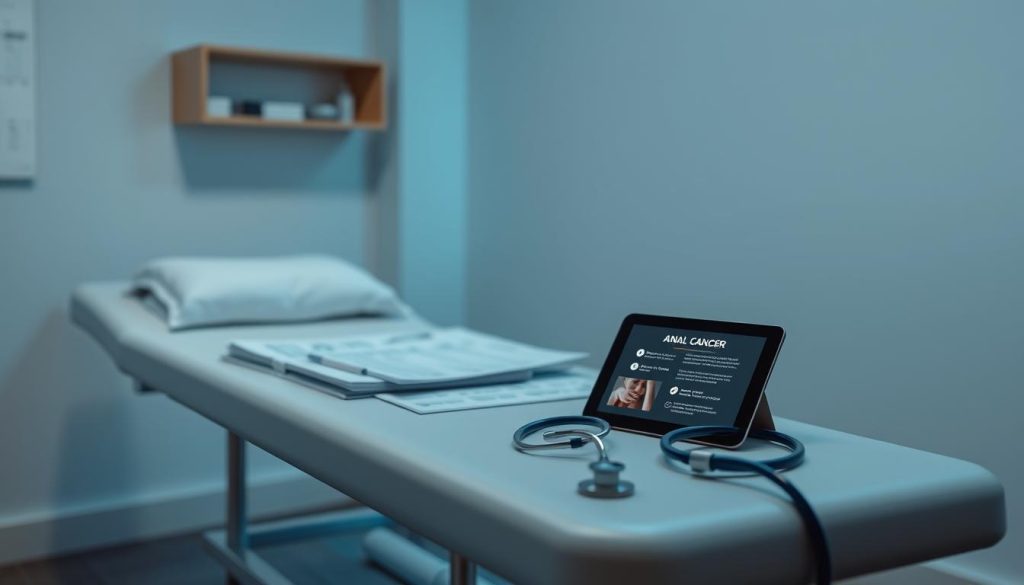
When to Seek Medical Advice
See a doctor if symptoms last or get worse quickly. You should also seek help for:
- Severe unexplained pain and bleeding
- Rapidly increasing size of anal lumps
Here’s a table on when to seek anal cancer screening:
| Symptom | Immediate Attention Needed | Consult Within a Week |
|---|---|---|
| Severe rectal bleeding | Yes | No |
| Minor rectal bleeding | No | Yes |
| Persistent pain | Yes | No |
| Changes in bowel habits | No | Yes |
This info shows the importance of listening to your body. Being proactive with anal cancer tests based on symptoms can greatly improve treatment outcomes.
Risk Factors Associated with Anal Cancer
Knowing about anal cancer risk factors is key for stopping anal cancer before it starts and finding it early. Many lifestyle and genetic factors can raise the risk of getting this disease.
HPV infection, especially HPV-16, is a big risk factor for anal cancer. Smoking, having many sexual partners, and a history of other HPV cancers also play a part. People with weakened immune systems, like those with HIV, are at even higher risk.
| Risk Factor | Description | Impact on Cancer Risk |
|---|---|---|
| HPV Infection | High-risk HPV strains like HPV-16 | Significantly increases risk |
| Smoking | Use of tobacco products | Modifies tissue in the anal area, increasing cancer susceptibility |
| Immune System Health | Lowered immunity, especially in HIV-positive individuals | Higher likelihood of HPV-related complications |
| Sexual History | Multiple sexual partners, history of anal intercourse | Increases exposure to HPV |
Understanding these risk factors can help people take action. Steps like regular screenings, HPV vaccines, and healthy lifestyle choices are crucial for anal cancer prevention.
Comparing Anal Cancer Symptoms with Similar Conditions
It’s important to know the signs of anal cancer and how they differ from other issues like hemorrhoids and anal fissures. This helps in getting the right diagnosis and spreading awareness about anal cancer. Misunderstandings can cause unnecessary worry or delay in treatment. This part will clear up key differences and tackle common misconceptions.
Anal Cancer vs. Hemorrhoids
Anal cancer and hemorrhoids can both cause bleeding and discomfort. But, their causes and treatments are different. Hemorrhoids are usually harmless and happen due to straining or pregnancy. Still, any ongoing symptoms need a doctor’s check-up for a correct diagnosis.
Anal Cancer vs. Anal Fissures
Anal fissures and anal cancer can both cause pain and bleeding. But, fissures are linked to sudden pain after hard stools. It’s easy to miss signs of anal cancer if they’re thought to be fissures without a doctor’s look.
Addressing Common Confusion
Clearing up confusion is key to better handling possible signs of anal cancer. Learning about symptom differences and getting medical advice early are vital. They help make informed health choices and avoid wrong diagnoses.
| Condition | Symptoms | Common Causes | Suggested Actions |
|---|---|---|---|
| Anus Cancer | Persistent rectal bleeding, lumps near the anus, anal pain or discomfort | HPV infection, smoking, age over 50 | Seek immediate medical evaluation for potential anal cancer diagnosis |
| Hemorrhoids | Intermittent rectal bleeding, anal itching, discomfort during bowel movements | Straining in the toilet, pregnancy, obesity | Over-the-counter remedies, diet adjustment, consult doctor if severe |
| Anal Fissures | Sharp pain during bowel movements, bright red blood on stool or toilet paper | Passing large or hard stools, constipation | Mild cases heal with topical treatments, severe cases require professional care |
Advancements in Anal Cancer Screening and Detection
The fight against anal cancer has made big steps with advancements in anal cancer detection and screening. New technology and methods are making screenings better and more accessible. This could lead to more people catching the disease early.
Recently, anal cancer screening methods have gotten a lot better. They now use advanced tools instead of just simple checks. This helps doctors find the disease when it’s easier to treat, which is good for patients.
| Screening Method | Technology Used | Advantages | Limitations |
|---|---|---|---|
| Digital Rectal Examination (DRE) | Manual | Immediate, cost-effective | Less sensitive for small tumors |
| Anoscopy | Optical Scope | Detailed visualization of anal canal | Requires specialized equipment and training |
| HPV DNA Testing | Molecular diagnostics | Identifies high-risk HPV types | Does not confirm cancer presence |
New advancements in anal cancer detection include better imaging and targeted biopsies. Also, tests for human papillomavirus (HPV) are helping find cancer early. These steps show how science is helping in the fight against anal cancer.
Early detection through advanced screening can substantially increase the chances of successful treatment outcomes. The key is regular screening and being aware of the symptoms.
- Increased public education on the importance of screening
- Accessibility of advanced screening methods
- Integration of routine screening into regular health check-ups
Building a strong bond between patients and doctors is also crucial. It makes sure anal cancer screening methods are used right. This helps people take care of their health in a big way.
Anal Cancer Diagnosis: Procedures and Tests
Getting a diagnosis for anal cancer is a detailed process. It involves several anal cancer tests and anal cancer diagnosis procedures. Knowing these steps helps in finding cancer early and planning treatment.
Initial Examination Methods
The first step in diagnosing anal cancer is a thorough physical exam. This includes a detailed medical history to look for risk factors and symptoms. A digital rectal exam (DRE) is often the first test, allowing doctors to feel for any abnormalities.
An anoscopy may follow. This uses a small tube to look inside the anus and rectum.
Lab Tests and Imaging
After the initial exam, more anal cancer tests are done to find and measure the cancer. Blood tests check for high white blood cell counts, which can mean an infection or other cancer-related conditions. Imaging tests like ultrasound, MRI, or CT scans show the inside of the body and any growths.
Biopsy and its Significance
The biopsy is the key test for diagnosing anal cancer. It removes a tissue sample from the suspicious area for microscopic examination. This test is vital for confirming cancer cells and understanding the cancer’s type and severity.
For more detailed information on anal cancer diagnosis procedures, including staging and treatment options, check credible medical resources. These sources provide deep insights into cancer diagnosis and the latest in treatment.
Proven Strategies for Anal Cancer Prevention
It’s important to know how to prevent anal cancer and lower the risk. This part talks about lifestyle changes and medical steps to help keep you healthy. By doing these things, you can lower your chance of getting anal cancer.
- Regular Screening: If you’re at higher risk, like having HPV or being over 50, get screened often. Early detection through screenings can greatly improve your chances of beating the disease.
- Vaccination: HPV vaccines can stop the virus types most linked to anal cancer. Getting vaccinated before you start being sexually active is best.
- Dietary Adjustments: Eating more fruits, veggies, and fiber can boost your health. It might also help lower cancer risk.
Living a healthy lifestyle is key to avoiding many diseases. It’s especially important for anal cancer prevention.
Exercise: Staying active helps keep you at a healthy weight and boosts your immune system. This can protect you from many cancers, including anal cancer.
Avoiding Smoking: Quitting smoking is a big step in reducing anal cancer risk factors. Smoking is linked to many cancers, not just lung cancer.
Starting these health habits early can make a big difference. It’s also crucial to talk to your doctor to make a plan that fits your health needs.
Getting involved in these health steps early is key. You have the power to greatly improve your health by making smart choices and taking action.
Living with Anal Cancer: Awareness and Support
Life after being diagnosed with anal cancer is tough. It needs a supportive environment, both medically and emotionally. Learning about early detection of anal cancer and getting support from peers can help a lot.
The Role of Awareness in Early Detection
Knowing about early detection of anal cancer is very important. When people know, they get checked early. This helps catch the disease when it’s easier to treat. It’s good for those at risk and for everyone to stay healthy.
Support Groups and Resources
Living with anal cancer is easier with support from others who get it. Anal cancer support groups are great for sharing stories and tips. They offer a place for encouragement and understanding.

Education and support help people with anal cancer feel less alone. Working together, patients, doctors, and support groups make a big difference. They help manage the disease better.
Conclusion
We’ve explored the important topic of anal cancer, covering symptoms, risks, and early detection. Awareness is key, guiding people through the unknown. Knowing the signs helps them seek medical help quickly and wisely.
Spotting anal cancer early is crucial. We’ve made complex medical info easy to understand. This helps create a safe space for those facing this diagnosis. Regular check-ups and support are vital during treatment.
Let’s take away the important lessons from this article. Community and knowledge offer comfort and strength. Together, we can face anal cancer with courage and hope.
FAQ
Q: What key signs might indicate the presence of anal cancer?
A: Signs of anal cancer include rectal bleeding and anal itching. You might also notice a mass or lump near the anus. Pain or pressure in the anal area and changes in bowel movements are other signs. If you see any of these, get medical help right away.
Q: Can you describe what anal cancer is?
A: Anal cancer starts in the anus, the end of the digestive tract. It affects different types of cells. The most common type is squamous cell carcinoma.
Q: How common is anal cancer and who is at risk?
A: Anal cancer is rare, affecting about 1 in 500 people over their lifetime. People with HPV, a history of smoking, older adults, and those with weakened immune systems are at higher risk.
Q: What early symptoms of anal cancer should prompt concern?
A: Look out for anal bleeding and persistent itching. Discharge or drainage, feeling like you haven’t finished a bowel movement, and pain or pressure are also signs. Changes in bowel habits or stool shape are less common but still important to report.
Q: When should you seek medical advice for possible anal cancer?
A: If you have persistent bleeding, changes in bowel habits, a lump in the anal area, pain, or other significant symptoms, see a doctor. It’s crucial to get checked if symptoms don’t go away or get worse.
Q: What are some known risk factors for anal cancer?
A: Risk factors include HPV infection, smoking, being over 50, and a history of cervical, vaginal, or vulvar cancer. Those with HIV/AIDS and those who have receptive anal intercourse are also at higher risk.
Q: How are symptoms of anal cancer different from those of hemorrhoids or anal fissures?
A: Symptoms like bleeding and discomfort can be similar to hemorrhoids and fissures. But anal cancer often causes a persistent mass, abnormal discharge, and changes in bowel habits. These symptoms don’t usually get better on their own. A doctor should check prolonged symptoms to tell them apart.
Q: What advancements have been made in anal cancer screening and detection?
A: New screening methods include anal pap smears and high-resolution anoscopy (HRA). These can spot abnormal cells early. Better imaging techniques also help doctors assess the disease more accurately.
Q: What tests are involved in the diagnosis of anal cancer?
A: Tests for anal cancer include a digital rectal exam (DRE) and an anal pap smear. Imaging like CT scans or MRI and a biopsy are also used. A biopsy takes tissue for a microscope check to see if cancer cells are there.
Q: What are some proven strategies for the prevention of anal cancer?
A: Preventing anal cancer involves getting HPV vaccinated, quitting smoking, and practicing safe sex. Regular screening is key, especially for those at higher risk. Keeping your immune system strong and watching for any anal health changes is also important.
Q: How important is awareness in the early detection of anal cancer?
A: Awareness is key for early detection of anal cancer. Knowing the signs and risk factors and getting regular check-ups helps catch it early. Educational efforts and campaigns are crucial in raising awareness and promoting early detection.
Q: Where can individuals find support and resources if they are living with anal cancer?
A: People with anal cancer can find support through cancer groups, non-profits like the American Cancer Society, and online communities. Healthcare providers specializing in oncology can also offer help. Hospitals and clinics have support programs and can connect you with counseling services and other survivors.













